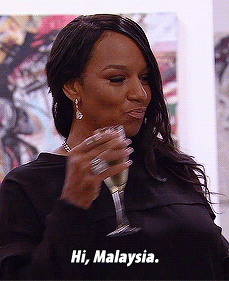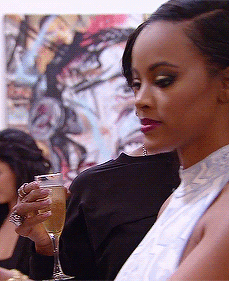 |
♡☯♡☮♡☯♡☮♡
|
|
Join Date: Jul 2009
Location: England
Posts: 79,885
Favourites (more):
RPDR UK 2: Bimini Bon Boulash BBUSA22: Janelle
|
|
|
♡☯♡☮♡☯♡☮♡
Join Date: Jul 2009
Location: England
Posts: 79,885
Favourites (more):
RPDR UK 2: Bimini Bon Boulash BBUSA22: Janelle
|
 Phillip Edgar Jones "proud of the show that changed face of television"
Phillip Edgar Jones "proud of the show that changed face of television"
Quote:
We were accused of dragging TV into the gutter but the programme did a lot for inclusivity and tolerance
As Big Brother disappears from Channel 5 and we remember some of its classic moments – Nasty Nick’s notes, George Galloway the cat, Nikki’s meltdowns, Jade’s verruca, Chantelle the fake celebrity, “fight night” – it’s also worth remembering how this ground-breaking format from the Netherlands changed the face of television. Some might dismiss it as the show that dragged TV into the gutter, a sign of our degraded society – but the truth is far more complex.
Big Brother was born at a moment of explosive innovation, at the very time the internet was taking shape, and it was the first programme to truly embrace online streaming; you might remember gathering round office computers watching Nasty Nick get his comeuppance at the hands of Craig the builder – the nation’s first full-scale, ultra-hysterical online shame-on-you moment. As we fast-forward into the social media age, we can see the seeds of our modern screen-based feeding frenzies taking root in that moment. When Big Brother 2 came along we went one step further, streaming the show 24 hours a day on E4 and allowing audiences different platforms through which to consume it. Now we stream everything. All the time. For ever.
It was also the first show to give viewers the power to influence what they were watching – and once that genie was out of the bottle, straightforward voting on evictions soon morphed into viewers calling Ofcom, the press, the RSPCA and the police to try to influence events in the house. And on that notorious fight night, the weight of the audience response almost led to the local police shutting the show down. It almost happened again a couple of years on with Jade and Shilpa.
You might not welcome those developments, but they were a reflection of our time rather than the cause of it – and there are other areas where the impact was definitively positive, especially in relation to inclusivity. Over my 10 years working on the show I had many a row with documentary producers who railed against “so-called reality TV” and asserted their God-given right to be the prism through which all real-life stories were told. I had even more rows with people railing against “those awful people” we were putting on TV. I thought in their snobbery both missed the point. We always aimed to show the diversity of the UK – race, class, gender and beyond – and the likes of Brian, Jade, Pete, Nadia and the rest were largely able to tell their own stories and express their own views unmediated by the eye and the angle of the documentary film-maker.
Along the way, the show demonstrated what a tolerant country we can be as we were captivated by Brian’s coming-out story in Big Brother 2 and voted Nadia, who’d transitioned from male to female, the victor in Big Brother 5. And that inclusivity and tolerance remains evident in this final series – with Cameron struggling to come out (still, in 2018), supported by his straight older brother, then opening up to the housemates and receiving an overwhelmingly positive response.
Big Brother can claim, too, to be the first show with a “celebrity” version, when showing celebrities as “real” people was a bit of a revelation. Who knew Anthea Turner could fold sheets so efficiently or Vanessa Feltz would buckle under pressure, or George Galloway would look so fetching in a leotard? The show can also legitimately lay claim to inventing a new kind of celebrity – people who now ply their trade appearing on every reality show going. And of course it was a celebrity-eating-itself version of the show that caused the biggest noise of all: when Jade Goody returned as a celebrity in Celebrity Big Brother and met Shilpa Shetty.
That led to The Big Brother race row. It was a scary but fascinating moment for all of us, being swept up in a media firestorm, and whatever you think of Jade or Shilpa, or of how we handled the whole affair, I believe it did a positive service to the country and demonstrated the unique power of Big Brother. The row brought to the surface an issue around racially insensitive language, respect and class in conversations that played out beyond the hysteria of much of the media coverage (Jeremy Clarkson calling Jade “a racist, pig-faced waste of blood and organs”, anyone?) in more considered debates in homes across the country.
Opening up conversations about relationships, morality, modes of behaviour, what’s right and wrong, what’s good or bad can only be a good thing and Big Brother has done that over the years in spades. Love it or loathe it, its legacy will live on.
• Philip Edgar-Jones was the creative director of Big Brother from 2001 until 2010
|
https://www.theguardian.com/commenti...how-changed-tv
|





